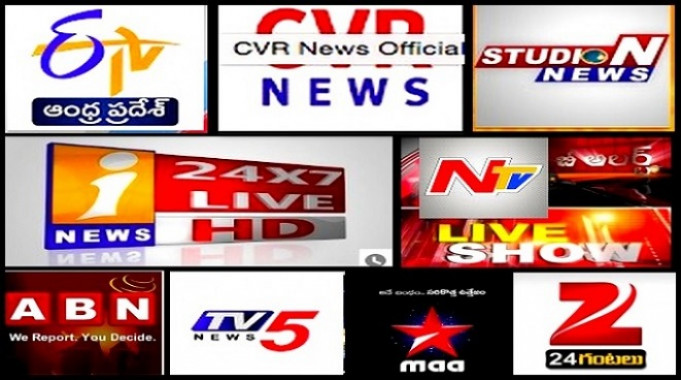Andhra Pradesh: no space left for independent media?
A few days back, a senior Andhra Pradesh Government official received a WhatsApp message from a friend which he shared with me. The message was a suggestion that all journalists working for news channels and newspapers owned by political parties should be considered party workers and all government facilities extended to them, including accreditation, should be withdrawn.
The suggestion speaks volumes about the prevailing atmosphere in the media in the two Telugu states. The rivalry is not confined just to the warring political parties which compete for space and an edge, but extends to journalists working for different media outlets owned by those political parties.
However, the WhatsApp message might not be the result of any feeling of antagonism as such but a genuine suggestion from an unbiased media observer.
The fact that such thoughts are being articulated is not at all surprising. The number of well meaning citizens who are observing mainstream media tendencies is registering an upward trend. This is very much evident to anybody who observes various social media platforms.
In both the Telugu states the prevailing media scenario has created an atmosphere of division among sections of society, particularly among caste groups, which are largely seen as being identified with certain political parties. This unhealthy tendency has become a matter for concern to neutral citizens. What’s more, the credibility of the Telugu media is taking a drubbing because of its political ownership and alignment.
Last month, a by-election was held for the Nandyal Assembly segment in Andhra Pradesh which saw a high stakes fight between the ruling Telugu Desam Party (TDP) and the principal opposition, the YSR Congress Party. The high voltage, acrimonious fight was naturally reflected in the media. But the problem arose over the coverage by Sakshi Media, owned by the family of Y. S. Jagan Mohan Reddy, leader of the principal opposition, which runs a daily newspaper and satellite news channel by the same name.
The TDP claims that Sakshi publications and TV broadcasts were completely biased and hence deserve to be regarded as paid news. A petition submitted by the TDP to this effect is pending with the Election Commission of India.
This development is not new and can be traced back to the time before Andhra Pradesh was divided in two. The 2014 general elections also saw the same kind of tussle and petitions. For its part, the YSR Congress Party alleges that the TDP, which does not own any media outlets, enjoys the unstinted support of two popular Telugu media houses which also run newspapers and news channels. This support, it says, is on account of caste equations.
Nor is the conflict confined to the TDP and YSR Congress alone. The family of Chief Minister K. Chandrasekhar Rao under whose leadership the Telangana Rashtra Samithi (TRS) successfully spearheaded a movement for a separate Telangana state, runs a newspaper, Namasthe Telangana, and T News, a satellite news channel. They also attracted the same kind of charges from both the Congress Party and the BJP during the 2014 elections.
This scenario of politically owned media outlets might, in fact, become even worse. In Telangana, N. Uttam Kumar Reddy, chief of the state unit of the Congress Party, recently announced that the party was going to launch a newspaper and news channel. The Congress leadership, whose UPA government sanctioned statehood for Telangana just before the 2014 elections, could not reap the electoral benefits of the decision in both the states and it attributes the failure, at least in Telangana, partly to the absence of its own media.
The Telangana state unit of the BJP, which has been gearing up to vie for power in the next general elections, also plans to set up a news channel. The leadership is waiting for the decision of a senior Congress Party leader who recently launched a news channel. The disgruntled leader is reportedly toying with the idea of joining the BJP. If he does, then the BJP need not set up its own media house since it will be able to enjoy the support of his news channel.
For those who want to get their news from unbiased mainstream media, social media platforms have provided a forum where they can give vent to their feelings. Their disenchantment with the present situation is very much evident on Facebook and WhatsApp.
But the journalistic community has been strangely silent over the overt political biases of the media. Even journalists’ unions have so far not initiated any discussion on this unhealthy practice, even though it is a clear case of conflict of interest and works against the fundamental rights enshrined in the Constitution.
